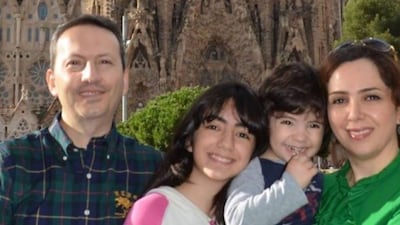
Ahmadreza Djalali and his family. Photo: Amnesty International
Ahmadreza Djalali and his family. Photo: Amnesty International
Scientist tells Swedish PM prisoner swap with Iran has left him facing execution
Ahmadreza Djalali says he has been left to his fate after recent deal between Sweden and Iran

